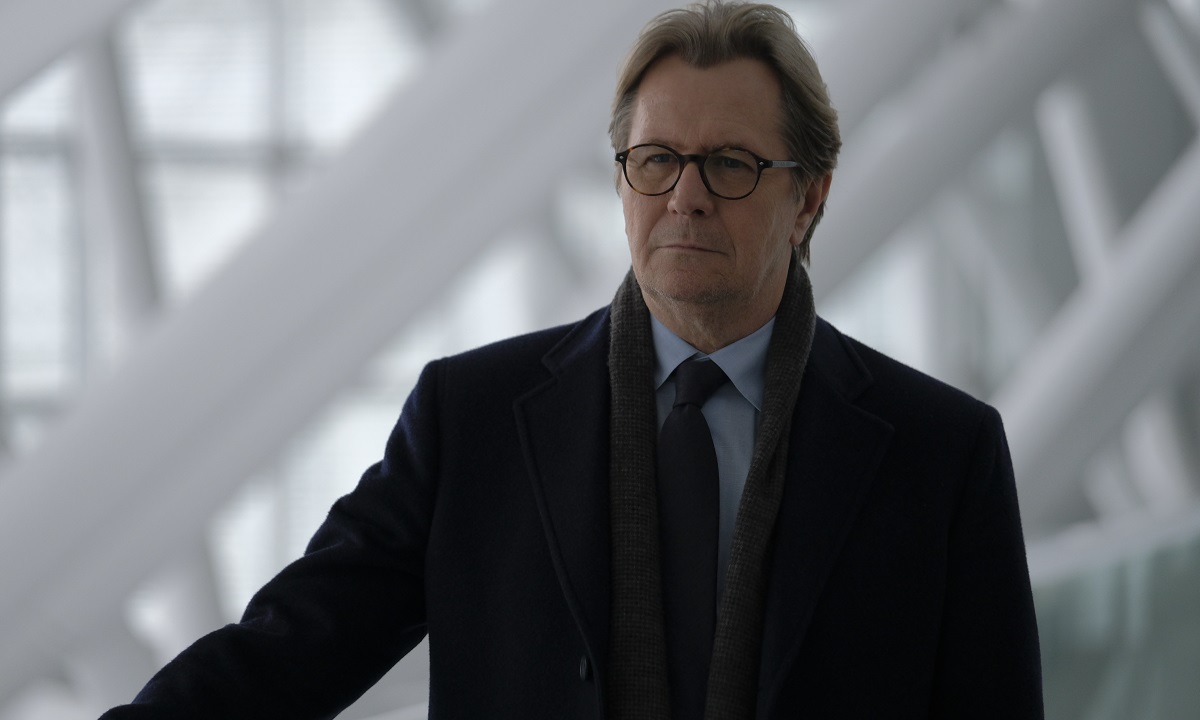
There are three stories told in Crisis that try to paint a complete picture of the opioid epidemic. We see how it affects those personally when tragedy strikes a family. We watch as crime rises with the influence of stronger drugs that protrude into cartels. And we see how even on the academic level there’s corruption from the top that keeps the drug problems flowing. While such a sprawling anthology is also sporadic in tone, there’s at least a bigger view for a topic that deserves a larger lens.
First, there’s the familiar investigative level of law enforcement. Officer Jake Kelly leads an elaborate plan to infiltrate and expose a massive operation by cartels to coordinate the distribution of Fentanyl. Such an operation requires Kelly to go so deep into this criminal world that there’s an intensity for how easily things could spin out of control. One misplaced step or subtle tell and it could all be over. Considering Kelly has some personal stake in this war on drugs, remaining firm and impersonal for such a mission may be harder than he thinks.
Next, there’s the more personal story of tragedy and vigilantism, keeping with the thriller aspect. Claire Reimann (Evangeline Lilly) is a mother who has just found her way out of the dark hole of addiction. But just when it seems like her life is back together, her son succumbs to an overdose. It seems to come out of nowhere. Not content with the assessment of her son’s demise, she goes on a quest to peel back the layers of just what led to her son’s drug use. She’s willing to go the extra mile for the truth, even if it means killing those who knew her son best.
Finally, there’s the most compelling tale of Dr. Tyrone Brower (Gary Oldman). The university professor is conducting a trial on a painkiller for a big pharmaceutical company and makes the horrifying discovery of the drug’s addictiveness. The company, however, wants him to keep these results under his hat in exchange for a pretty payout towards university research. But Brower’s need to do the right thing outweighs his ability to accept a bribe, leading to him clashing with the university head (Greg Kinnear) who would rather take the money than risk the damage such a company could do to their research. And they can pull out quite the media circus it would seem.
Crisis bounces between all three stories which create both a broad range of exploration but also an off-tone. Though there is a moodiness that remains present throughout, there’s also a conflict in what each story conveys. The story of Brower spends enough time on a tough moral questioning of how much such rich corruption is allowed to run wild, featuring many fantastic exchanges between Oldman and Kinnear. The story of Jake Kelly, however, is so overly dense and oftentimes meandering in its crime story that it feels as though we’re only getting half of that tale. There’s a certain intrigue I can’t deny I appreciated from the assembly but there’s also a needless complexity for how much it dips in and out of the crime aspect involved in the drug crisis. It’s an important angle, for sure, but there’s no denying something feels lost by the time this arc settles for a shootout by the final scenes.
The highlight of Crisis is by far the performances. Oldman and Kinnear deliver fantastic fury while Evangeline Lilly gives equal parts grit and pain to her somber story of a revenge investigation. There’s some solid backup as well by the likes of Luke Evans playing an earnest doctor and Michelle Rodriguez as a no-nonsense supervisor. Few scenes ever feel as though they’re being played up for melodrama despite the multitude of chances it has, from tearful realizations of death to a bitter bust into a drug den.
It remains to be seen just what impact a film like Crisis will have on the perspective of the opioid epidemic. It’s doubtful that such an episodic take will inspire provocation among audiences who have become accustomed to such a topic in film. But at the very least it’ll perhaps serve as a reminder that drugs are not just an issue of cartels, toxic social scenes, and corporate greed. It’s a combination of all of them and Crisis is admirable if, for nothing else, mixing a fine patchwork of the drug problem.

 “Deadpool & Wolverine” Review
“Deadpool & Wolverine” Review  “The Boys: Season Four” Review
“The Boys: Season Four” Review  “The American Society of Magical Negroes” Review
“The American Society of Magical Negroes” Review  “Twisters” Review
“Twisters” Review  “Sausage Party: Foodtopia” Review
“Sausage Party: Foodtopia” Review  “Robot Dreams” Review
“Robot Dreams” Review  “Godzilla x Kong: The New Empire” Review
“Godzilla x Kong: The New Empire” Review  “Slave Play. Not a Movie. A Play.” Review
“Slave Play. Not a Movie. A Play.” Review 


